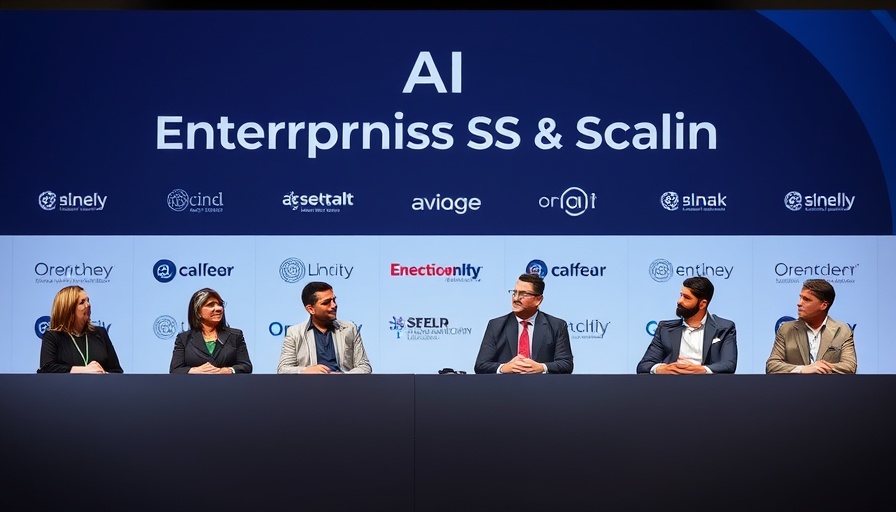
Understanding the Challenges of AI in Regulated Industries
As businesses in regulated industries like healthcare and finance look towards artificial intelligence (AI) as a potential game-changer, they face multiple obstacles that can hinder effective adoption. Compliance requirements, legacy systems, and integration costs into core operations are significant hurdles that often lead to stagnation in AI initiatives. A report by the US Government Accountability Office underscores these challenges, particularly highlighting the model risk management and compliance obstacles that financial institutions encounter as they navigate the complex landscape of AI deployment.
The Importance of a Process-First AI Approach
Firms that excel in incorporating AI into their workflows are those that adopt a process-first strategy. A study by Boston Consulting Group found that 62% of the value generated by AI comes from embedding it into core business processes rather than isolated pilot projects. This approach ensures that AI is not merely an add-on but a critical component of operational workflows, ultimately enabling firms to optimize costs, improve productivity, and streamline operations. Businesses in regulated industries can enhance their competitive edge by treating AI as a fundamental driver of success, alongside compliance and risk management.
Adaptive AI Agents: Meeting Compliance Challenges
Another pivotal insight from leaders in the industry is the potential of autonomous agents powered by AI. These intelligent agents are designed to adapt to real-time data and changes in regulatory policies, helping organizations maintain compliance with significantly less manual intervention. As leaders like Vrinda Khurjekar from Searce suggest, integrating these autonomous agents can ease operational complexities tied to shifting compliance demands, aligning a company’s operational processes with the regulatory environment.
Embedding AI into Company Culture
Success in AI adoption is also deeply rooted in cultural alignment within the organization. Leaders such as Ylan Kazi from Blue Cross Blue Shield emphasize that fostering a culture supportive of innovation is crucial. Companies must ensure employees are educated and involved in the AI adoption process. This shift not only mitigates resistance but also enhances unit cohesion as everyone from data analysts to frontline workers understands the technology's benefits and limitations.
The Role of Podcasts in AI Thought Leadership
One innovative avenue explored by leaders in the industry to disseminate knowledge and expertise on AI challenges and solutions is through podcasts. Utilizing the platform of podcasting as an AI thought leadership tool allows for genuine conversations surrounding the complexities of AI implementation in business scenarios. The discussions among seasoned professionals not only provide insight into overcoming regulatory hurdles but also promote community engagement and knowledge sharing.
In conclusion, the evolving landscape of AI presents substantial opportunities for businesses in regulated industries. However, organizations must navigate a maze of compliance and operational challenges effectively. By adopting a process-first approach, leveraging autonomous agents, fostering a supportive culture, and utilizing digital platforms such as podcasts, businesses can unlock the transformative potential of AI.
Understanding these insights could be vital for business owners seeking to innovate within their fields. As you consider implementing AI, reflect on these strategies, and explore integration through podcasts and thought leadership.
 Add Row
Add Row  Add
Add 





 Add Row
Add Row  Add
Add 


Write A Comment